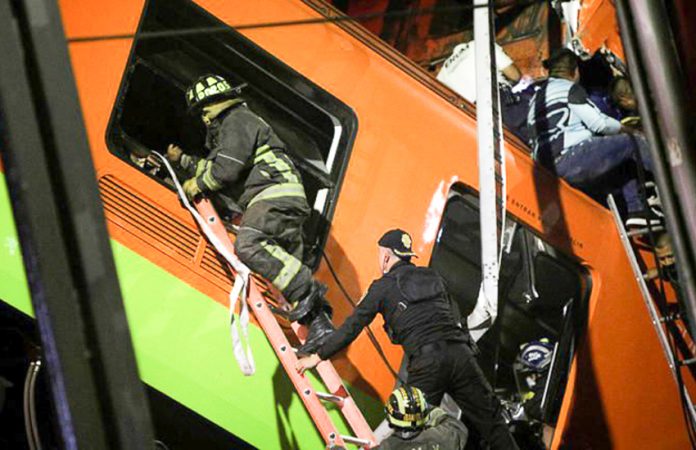When my mother died, my parents had long since gone through their savings after a spate of what some might call bad luck and what others would call just the predictable list of things that happen as you age: illness, inability to work with the same vigor and duration, unexpected expenses, unforeseen needs.
In the absence of personal savings or insurance for this inevitable occurrence, my sister and I were left to figure out how to get the money ($1,000 at the cheapest) for the cremation.
We ended up raising it fairly quickly, thank goodness, among friends and family through a GoFundMe campaign. As grateful as we were for the help, it would have been fantastic not to have worried about how we’d pay for the task of putting our mother to rest on top of the grief and the very unfair fact that life, jobs and one’s bills continue as if nothing has happened even in a crisis.
I’ve been thinking about those days from just a few years ago as I’ve read about the line 12 Metro overpass collapse in Mexico City that killed 26 people and injured more than 80 others.
The victims’ families will receive 700,000 pesos in compensation for their loved ones (injured victims will receive 10,000 pesos).
Money, of course, cannot replace the lives of those lost, and it does not make things “even” in any sense. But in this gruesome aftermath, after the fact of a tragedy that cannot be changed, it is the first right thing to do for now.
In the United States, a Federal Reserve survey revealed that almost 40% of people would not be able to come up with US $400 in an emergency. (Actually, those are prepandemic numbers from 2019; now, in the midst of an ongoing emergency, many have plunged into poverty on both sides of the border.)
I’d like to see similar survey results here: how many Mexicans would be able to come up with 4,000 pesos for an emergency?
I’m guessing not a lot, though many throughout the pandemic have been forced to come up with that, and much more, for sudden funeral expenses. At the very least, the families of the victims of the accident won’t have to face the added stress of finding funds for a funeral.
Still, though, this seems to have been a preventable tragedy. Currently, no one is prepared to take the blame as we wait for the results of an independent investigation.
Freak accidents are nothing new in Mexico, nor in the rest of the world, for that matter. But there are accidents that can be prevented, or at least made less bad, by taking precautions and ensuring that our physical infrastructure is up for the task.
A seatbelt can save your life. Anchoring your TV and large bookcases to the wall can ensure that they don’t fall on top of a curious, climbing child. A handrail on stairs can give us something to grab onto if we slip.
And making sure that problematic sections of infrastructure are definitively fixed before allowing them to operate can prevent the kind of tragedy that befell the city last week. The official stance was that the line had been constantly monitored, audited and repaired.
However, that contrasts with accounts by both Metro union members who’d been claiming for years that the line showed serious structural problems from the beginning and neighbors who claimed they’d seen the columns shake every time the train passed.
I’ve written before about my worries concerning badly constructed infrastructure and the shocking quantity of bridges in dire need of repair. This is still an area of great concern.
The Metro accident garnered a lot of attention because it was in the capital and because it involved a lot of people and was so shocking, dramatic and unexpected. Less attention is given to all of the individual accidents caused by faulty or unrepaired infrastructure that don’t involve large swaths of people in one fell swoop.
The safety of the public is not only a worthy investment, it’s a necessary investment. We pay taxes, in part, to fund our own collective safety. If we can’t be at least relatively assured of our safety when out and about, then what’s the government even for?
So keep wearing your seatbelts. Keep anchoring your heavy pieces of furniture to the wall. Keep using handrails, and keep poisonous household cleaning products out of the curious mouths of toddlers. But do your best to make sure the powers that be don’t forget to put in place the equivalent safety measures on a national level.
Life will never be risk-free; the coronavirus has taught us nothing if not that. But, good grief, people. Let’s at least try to improve our odds by ensuring that standing on a crowded train minding your own business on the way to work or school doesn’t put you in danger of plunging to your death.
The financial response to the families of the victims was the right one, but those in charge of infrastructure at the local and at the national level must go further by guaranteeing our right to safety and making sure that something like this does not happen again.
Sarah DeVries is a writer and translator based in Xalapa, Veracruz. She can be reached through her website, sdevrieswritingandtranslating.com.
